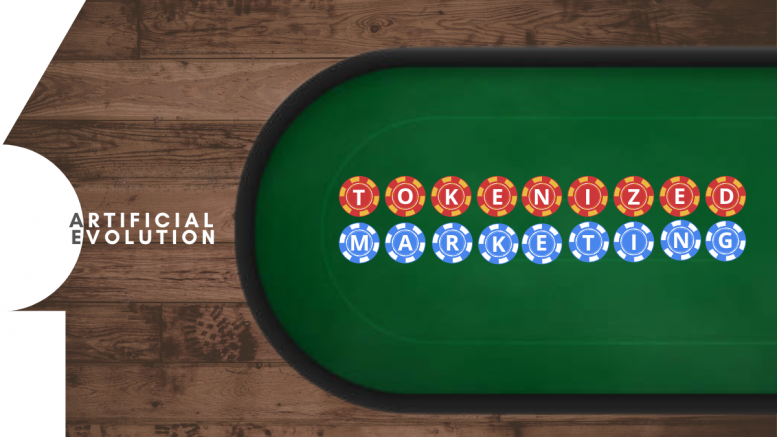As someone who likes to say he runs a startup, one of the key issues I face is getting the word out. My business partner and I were creating a blockchain based gaming company. We realised that marketing a crypto business in India is hard.
Very hard.
So we started scraping from the bottom. We started really small – with two followers on Twitter. Got a bunch of influencers interested, press releases distributed and a bunch of community members on our Discord channel.
(^this by the way is still in process, so hopefully this article ages well)
In our journey in the darkness, we realised something: Marketing has become more of a gig economy than ever before.
But these gigs, weren’t always run by people.
Every so often, a bot would do our bidding.
The PayForWhatYouGet Model
From content creator platforms to cryptocurrency projects, marketing has become significantly tokenised. Legacy marketing agencies and traditional PR collectives have evolved to this too. Products like PR Newswire, digital content packages and influencer programs have affected and changed the way we market goods and services.
Remember how retainers were the primary mode of an agency getting clients on board?
Doesn’t happen that often anymore. I spoke with an unnamed gentleman from an American Web3 PR agency last week. In my pursuit of offering a PR retainer, he declined. He simply said:
“Honestly, we barely do retainers anymore. We’re more focused on delivering objective based campaigns. If you need to raise a community for your NFT collection, we’ll do that. If you want to launch a token and create hype, we’ll do that too. But we’d rather do it as projects so our focus cannot be deterred.”
This even happens to consumers – what an absolute change the digital ads market has gone through. One project that comes to mind is the Basic Attention Token (BAT). Simply put:
- Download the Brave browser
- Enable and link your BAT crypto account
- Watch ads while you surf the net
- Earn crypto
Here’s Mr Eich, the legendary founder of Mozilla AND Javascript, shedding some light on Lex’s podcast:
Wtf? Break it down for me.
No. Okay fine.
Let’s think about the average 31-year-old upstart with a startup. Pre their seed-funding, they have less money, no brand recognition and lots of passion. How would they tokenise their basic marketing approach?
1.Public Relations
Initial Approach: Hire a consultancy. Let them manage everything.
Tokenised approach: Do three things.
- Subscribe to all PR wire platforms. ZEX has PR distribution from as little as $9. Choose your favourite and fire at will.
- Find an influencer aggregator. This could be an individual who’d work for a commission or a digital platform like GoodCreator Co. Each offers specific data on influencers useful to you. Find>Select>Pay>Execute>Get Report
- Sign into HARO – a product by Cision UK. HARO or Help A Reporter Out sends you daily email opportunities from journalists looking for stories, quotes, opinions and interviews from across the world. Sign in once and get in-bound PR leads for life. Or if you’re lazy, just follow #URGHARO on Twitter.
2.Advertising
Initial Approach: Get a ad specialist in-house and media agency + a creative agency.
Tokenised approach: Get media-buying and creative freelancers. Then, do two things.
- AnswerThePublic and Google Keyword Tracker: Both these tools give you perspective of how much you can understand about your customer with about 3 clicks. With both built around Google search, the undisputed monop…. Sorry, leader in the search engine industry, each tools provides deep insight into the audiences for literally anything. LITERALLY.
- Unconventional Partners: Find short-burst marketing or production companies that work on singular goals. Usually for launches, announcements or events. An argument can be made here that this will mean people will forget you if the marketing machinery doesn’t run all the time. I disagree. If the product/service or even if just the idea is good, the customers will come even though you don’t advertise to them directly.
So what? This is not practical. This is just piecemeal. Where is your strategy?
Good point. But if the marketing strategy is defined by your agency then you’ve probably already dropped the ball on making those decisions. Understanding your goals is a bigger priority – If its selling soap, find the weirdest, most cost-effective and explosive way of telling users your soap is the best. People remember things that surprise them. Drive strategy based on who you are, what your startup is. Keep the basic do’s and don’ts and guidelines in mind but market your own way.
So what next then?
Tokenisation of tasks – specifically marketing, is not new. There is precedent since the post-war 1950s when corporations had just found their feet after the global turmoil that was WW2.
The surge in easy-to-use apps, digital literacy and the boost of internet use that was the years of 2020-21 (because of a reason I can’t recall) has appropriately brought this back.
Web3 specifically, excites me. The whole idea around a shared economy has significant basis in tokenization – whether to the end consumer, a founder or a marketing partner.
The future might me more tokenized than we think.
Way more.
Let’s just hope we can keep up.
Stay Curious. Stay Secure.
See you next week.
This column has been shared as part of the Global Alliance Education and Training Month – 2022
The views and opinions published here belong to the author and do not necessarily reflect the views and opinions of the publisher.



Be the first to comment on "Tokenised marketing"